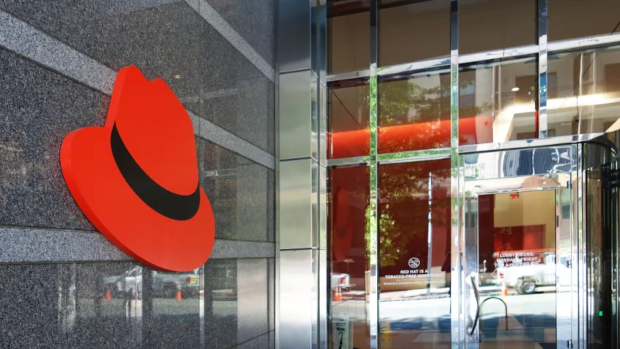
Red Hat adopts a remote-first policy, with offices turned into ‘neighbourhoods’
Open source giant Red Hat has revealed that its staff can come into the office as many times as they like, or work from home indefinitely.
If they choose to return to the office, however, employees will find a redesigned space and collaborative ‘neighbourhoods’ awaiting them, according to chief people office Jennifer Dudeck.
More than 30% of Red Hat staff worked remotely before the pandemic, Dudeck wrote in a blog post. However, the software provider is expanding that flexibility to offer its employees the freedom to be ‘office-flex’ and choose the amount of time they spend in the office. Senior leaders, though, are still encouraged to work from one of the company’s offices to “interact and learn more”, Dudeck said.
One of the reasons for expanding the remote work policy, according to Dudeck, is to take away the limits of location. This allows the company to find and attract diverse talent. It also helps its current employees manage their lives better.
However, Dudeck included a section in the blog post that details the changes the company is making to its office spaces and, more importantly, its culture. Under the subhead, “the office is a vibe”, Dudeck explains that its work areas need to be more than simply places of work.
“With the majority of our associates having the flexibility to decide when they would like to use the office, we realised it needed to be a place where associates can connect to Red Hat’s culture, collaborate and engage more fully,” Dudeck wrote. “Simply put, if associates are not going to the office all of the time, it’s even more important that it’s fun, functional and enjoyable when they do.”
One of the first changes is “neighbourhoods” which will be spaces where teams gather to work; these will have fewer desks and more booths, sofas and small collaboration spaces, according to Dudeck. There will also be an “open decision hub” which will act as a central place for staff to participate in decisions, voice opinions, conduct surveys and monitor how well company decisions have gone.
“Looking at the Open Decision Hub, associates can see which leaders are driving an issue, what is open for feedback (and what’s not) and where we are in the decision process.”
Red Hat’s approach to hybrid work appears to be as full-on as Salesforce, which announced an end to the 9-to-5 last year. Both, however, are in stark contrast to other tech giants, like Apple, Microsoft and Google, which have all settled on three-day remote working weeks.
Ⓒ Future Publishing






Subscribers 0
Fans 0
Followers 0
Followers